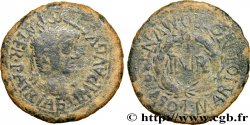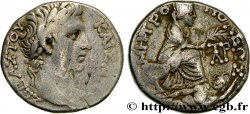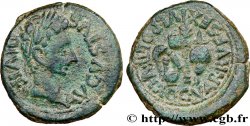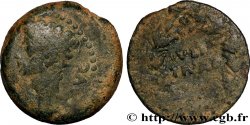bpv_141551 - AUGUSTUS Tétradrachme syro-phénicien
Not available.
Item sold on our e-shop
Price : 190.00 €
Item sold on our e-shop
Price : 190.00 €
Type : Tétradrachme syro-phénicien
Date: 5 AC.
Mint name / Town : Antioche, Syrie, Séleucie et Piérie
Metal : silver
Diameter : 26 mm
Orientation dies : 12 h.
Weight : 13,28 g.
Rarity : R2
Coments on the condition:
Forte usure mais type bien lisible, sauf le IB devant le visage
Catalogue references :
Obverse
Obverse description : Tête nue d’Auguste à droite (O°), dans un cercle en forme de stemma, en haut à droite, monogramme.
Obverse legend : SEBASTOU IB UP.
Obverse translation : (Auguste).
Reverse
Reverse description : Zeus nicéphore assis à gauche sur un trône avec dossier, tenant une Niké de la main droite et un sceptre long de la main gauche ; deux monogrammes dans le champ à gauche ; un à l’exergue.
Reverse legend : KAISAROS QEOU UIOU.
Reverse translation : (César fils du Divin).
Commentary
Cette émission est la première réellement impériale où le roi séleucide déchu est remplacé au droit par le visage de l’empereur, si l’on excepte la rarissime frappe au N.K.E.D, Prieur 30 = RPC 4108 (on ignore toujours complètement la traduction de cet acronyme !). On constate pourtant la permanence du revers au Zeus, témoignage une fois de plus des méthodes de colonisation romaine, évitant de modifier visiblement les us et coutumes locaux. Une illustration exemplaire des différences entre les nations, qui absorbent leurs colonies ou y imposent leurs lois, et les empires qui restent des agrégats de peuples, religions et coutumes différentes.
En cela, cette émission est historiquement très importante car elle marque le début, cinquante ans après le passage de Jules César dans la région, de la romanisation politique de la Province.
Dans la base TSP maintenue par Michel Prieur, vingt exemplaires sont maintenant répertoriés, on remarque que ce n’est que très tardivement qu’un exemplaire est rentré au Cabinet des Médailles ( BN 1988-146) et que pratiquement aucun exemplaire n’est connu en qualité superbe. Cet exemplaire est le 0049_018 . Il provient des doubles de la Collection McAlee par le truchement d’une vente CNG.
En cela, cette émission est historiquement très importante car elle marque le début, cinquante ans après le passage de Jules César dans la région, de la romanisation politique de la Province.
Dans la base TSP maintenue par Michel Prieur, vingt exemplaires sont maintenant répertoriés, on remarque que ce n’est que très tardivement qu’un exemplaire est rentré au Cabinet des Médailles ( BN 1988-146) et que pratiquement aucun exemplaire n’est connu en qualité superbe. Cet exemplaire est le 0049_018 . Il provient des doubles de la Collection McAlee par le truchement d’une vente CNG.







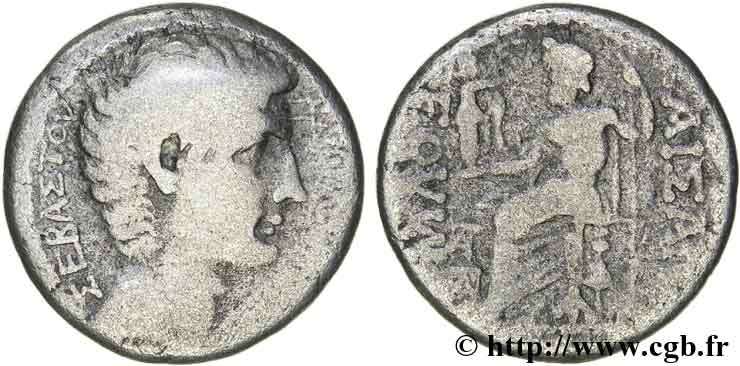
 Report a mistake
Report a mistake Print the page
Print the page Share my selection
Share my selection Ask a question
Ask a question Consign / sell
Consign / sell
 Full data
Full data
